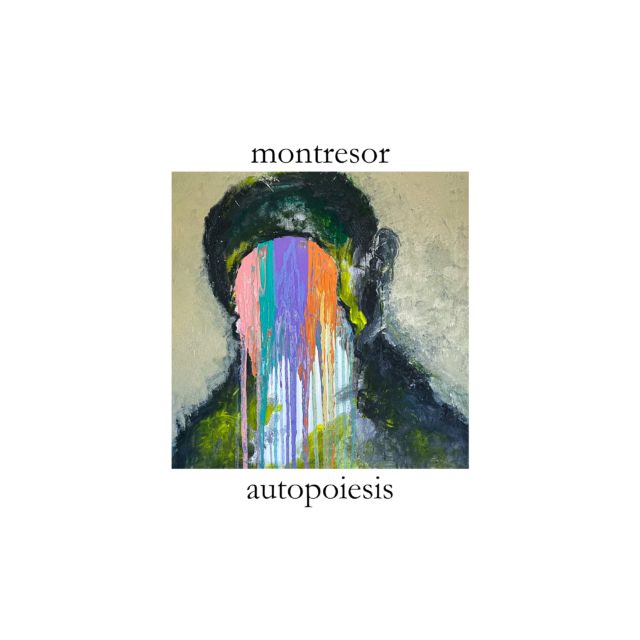Montresor unveils the next stage in his musical evolution with his long-overdue new album Autopoiesis — showcasing today on Tinnitist.
For the followup to his 2015 release Entelechy, Australian guitarist, composer and musical dadaism aficionado Cameron Pikó — who utilizes the moniker of Montresor for his musical pursuits — undertakes a stylistic departure from his previous work, incorporating jazz fusion and classical elements amid tightly composed works.
An obvious and lifelong progressive and experimental devotee, Pikó’s previous album was an all-musical love letter to prog rock that brought past to present with the punishing ’80s-style guitar licks, the time signatures of King Crimson and Jethro Tull, and the melodic intensity of more recent guitar bands like Ratatat or The Sword. Very little of Entelechy’s powerful rock remains on Autopoiesis, but there’s still a lot of Montresor there, rest assured.
“The first album in nine years was a long time in the making, with some compositions dating back to 2018’s February Album Writing Month challenge. Autopoiesis is an extended labour of love… paying tribute to a lesser-known subgenre of progressive music with a fascinating history, the short-lived Rock in Opposition movement of the late ’70s. Influenced by RIO bands such as Henry Cow and Univers Zero, the music fuses technical instrumental progressive rock with classical instrumentation.”
In parts of Entelechy such as Belewga Whale and Funkminster Bullerene, Pikó’s appreciation for the progenitor of prog rock, jazz fusion, could be seen peeking through. So while on first listen, Autopoiesis seems wildly different from its predecessor, all the same compositional elements are still there, just applied differently. Autopoiesis is much more Miles Davis meets Frank Zappa than Robert Fripp meets Dave Sabo, but the writing, the syncopation and the joy in experimental time signatures still remains.
“The music fuses technical instrumental progressive rock with classical instrumentation: Clarinet, bass clarinet, bassoon, piano, harpsichord and marimba alongside guitars, bass and drums,” says Pikó. “I navigate oddly timed rhythms, polymeters and bitonality thanks to a host of skilled musicians.”
The wild ride of Autopoiesis is clearly something the musician is passionate about, and anyone following his journalistic writings on the subject of progressive music will know he has a diverse taste. Despite the surprising turn this album took, it should be no surprise that he wants to take Montresor in as many different directions as possible.
Listen to Autopoiesis below and keep up with Montresor on his website, Facebook, Twitter and Instagram.







































